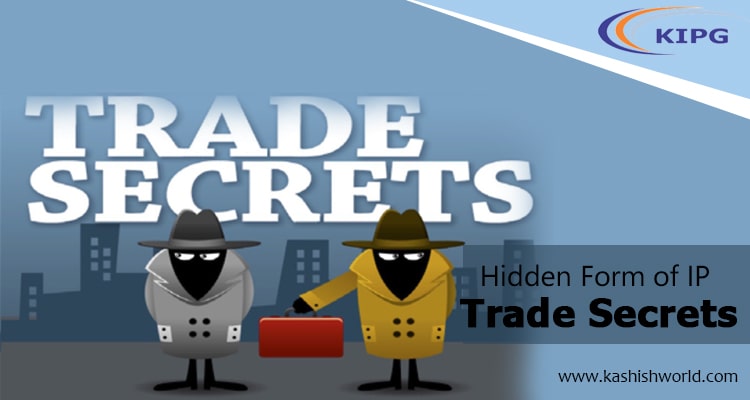
In today’s Intellectual Property (IP) intensive environment, the creators widely share their new ideas and inventions on various public and social media platforms. However, in this increasingly complex world with cut-throat competition on its verge, certain things that might ordinarily be protected by traditional Intellectual Property Rights (IPR) like trademarks, patents, and copyrights, are best kept a secret. Some of the world’s widely-known trade secrets like the recipe of Coca Cola and Google’s search algorithm, own immense value. These companies could immediately perceive that the IP value of these particular assets lays in their secrecy. Therefore, by treating them as trade secrets, these companies maintain a competitive advantage and an upper hand in the market.
WHAT ARE TRADE SECRETS?
Trade Secrets are the hidden forms of intellectual property that add value to a business. For many years, trade secrets had been in the shadows, but nowadays, they are gaining importance and have become an effective means of protecting certain valuable assets. Any information, which is commercially valuable and sensitive, can qualify as a trade secret. The subject matter of trade secrets covers a wide range including sales and distribution methods, advertising and other business strategies, the list of suppliers and consumers, to name a few. However, unlike other forms of IP, trade secrets aren’t exclusive legal rights and can therefore not be enforced against anyone who discovers the secret independently. But, in the cases of a trade secret’s misuse or unauthorized acquisition, appropriate actions can be taken. Moreover, the proprietor or owner of the trade secret can get an injunction in such unlawful acts.
TRADE SECRET LAWS
Just like the other IP Rights, protection of trade secrets is as per the prevailing national laws of a particular country. Although there are no formal requirements to register trade secrets with official authorities, most developed countries have laws dealing with the issues of trade secrets’ misappropriation or unlawful acquisition. For instance, in the United Kingdom, there isn’t any formal definition of a trade secret with no limitation on the type of information that can constitute a trade secret. However, the laws related to trade secrets offer effective remedies to the proprietors when their trade secrets have been unlawfully acquired, used, or disclosed.
TRADE SECRETS OR PATENTS?
One tough decision that most of the businesses nowadays have to make is whether they should protect their intellectual asset with the traditional IP Rights (like filing a Patent Application), or keep it as a trade secret. Although in some cases the answer may not be relatively straightforward, however, in many instances, answering the following questions can clear several doubts.
- Is the technology, invention, or the idea of a new process, patentable?
- Is the IP asset in question worth keeping secret and commercially valuable?
- Is there a high probability or risk of someone else patenting your asset or invention?
- Would, you as the owner of the asset be able to ensure its secrecy?
- What are the chances of your competitors coming to know about how your asset works by reverse engineering or any other means?
There are other considerations as well, which need to be taken into account, like the costs of protecting the asset and the interests of the investor. In a nutshell, it won’t be wrong to say that both trade secrets and patents are effective forms of IP protection; however, one may be more suitable than the other based on the situation and the subject matter. The owners should realize the fact that trade secrets can be potentially as valuable as patents, only if they are protected diligently, and used strategically.
HOW CAN TRADE SECRETS BENEFIT THE SMALL AND MEDIUM-SIZED ENTERPRISES?
It is a matter of fact that yes; the patenting process is time-consuming and an expensive affair, with which many small and medium-sized enterprises (SMEs) often struggle. In such cases, trade secrets become handy as they are relatively straightforward, require no registration costs, or legal procedures to be followed. Therefore, SMEs should consider keeping their undetectable manufacturing techniques, list of suppliers and consumers, or the hidden components in their products and services as trade secrets. Additionally, they can also license their trade secrets only after ensuring a confidentiality agreement.
BOTTOM LINE
Nowadays, many educational institutes and IP authorities across the globe are reaching out to the business firms and organizations for improving the awareness, usefulness, and value of trade secrets, however; there are still a lot of efforts required to strengthen the laws surrounding them.

